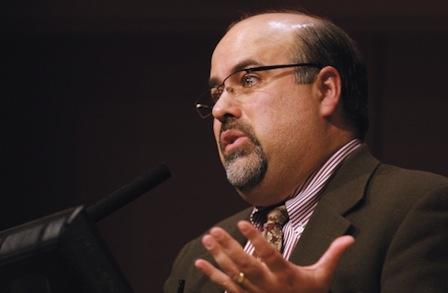
Rafael Campo博士出生于古巴和意大利父母的新泽西州的Dover,是诗人,散文家和医生,作为哈佛医学院艺术和人文倡议的文学和写作计划的主任。他在波士顿的哈佛医学院和贝切以色列专业医疗中心做了内科。Campo赢得了来自阿默斯特学院的BA和MA,以及来自哈佛医学院的MD。坎波在20世纪90年代初开始练习内科,在美国艾滋病毒/艾滋病疫情的高度。他的写作反映了他对诗歌的承诺作为自我的最充分的表达,以及他对它的理解作为治疗和同理心的必要工具。Campo是许多诗集系列的作者,包括替代医学(2013年);敌人(2007年)从新英格兰诗俱乐部收到了Sheila Motton Book奖;与人类的风景(2002);DIVA(1999),全国书籍评论家圈奖的决赛;身体告诉(1996年),兰美文学奖的获奖者; and The Other Man was Me (1994), winner of the National Poetry Series. In a review of Campo’s Comfort Measures Only: New and Selected Poems, 1994–2016 in Booklist, Ray Olson remarked, “In every poem, as in his and our lives generally, the world goes reeling around him … [Campo’s] poetic success depends on an unobtrusive mastery of meter—does any other American these days write better iambic pentameters? He also usually writes in forms, as simple as blank verse, as intricate as villanelles and variously rhymed tercets, and as a form demands, rhyme, though using assonance and/or consonance more than full homophony. This doctor-poet is as careful in his avocation as his poems imply he is in his vocation.” His poems often address questions of illness, health, suffering, and identity. He has “prescribed” poetry to his patients and led poetry workshops for them. “We come to poetry,” he has said, “I think because we are silenced in many ways. In biomedicine, we’re so good at appropriating the narrative—the biopsy report, the CT count, the potassium level. Writing gives patients an opportunity to say, this is my cancer, this is my HIV. It’s not a generic, what you see on the mammogram or how many lymph nodes are positive—I’m an individual.” Campo’s poetry tends to mix narratives of family, history, and illness with an attention to form, especially received forms. His interest in forms, he has alleged, comes from his own “hybrid” experience: “Being a hybrid myself, I’m very interested in playing with Indonesian forms and Middle Eastern forms, importing some of these things, being in a way almost promiscuous with form.” Critic Frederick Luis Aldama described Campo’s technique in his early work: “His poems are highly structured … he uses the security of form as a position from which to delve deep into the heart of his own feelings—feelings for his AIDS and cancer patients and for emergency room arrivals who have suffered from brutal encounters with an overwhelmingly homophobic and racist American society.” Other collections of Campo’s poetry also utilize a dramatic range of forms. Diva (1999), for instance, includes Campo’s translations of poems by Federico García Lorca, as well as terza rima, villanelles, pantoums, heroic couplets, and envelope quatrains. In the Journal of the American Medical Association, Jay A. Liveson called this book “a virtuoso display” of formal poetic styles. Both of Campo’s collections of prose, The Poetry of Healing (1997) and The Healing Art: A Doctor’s Black Bag of Poetry (2003), address the subjects found in his poetry, while describing the difficulties and rewards of being a poet-doctor. The Poetry of Healing won praise from many different quarters, including reviews in medical journals and a Lambda Literary Award. In Christian Century, Arthur W. Frank examined the book as a piece of “medical self-reflection” that challenged the administrative restrictions common to the profession: “Campo’s writing—the transformation of life in narrative and poetry—is the final expression of his fidelity to his patients … Campo shows the difficulty of cultivating public-spiritedness as an individual virtue within systems of managed care.” The Healing Art also received praise from literary and medical journals alike. Using poems from poets like William Carlos Williams, Marilyn Hacker, and Lucia Perillo, Campo addresses the necessity of differentiating between “healing” and “curing.” In the New England Journal of Medicine, Teresa Schraeder claimed that “Rafael Campo uses a palette of poetry to provoke the reader to philosophical, even existential thoughts about the ways in which illness and death define human experience.” Campo’s work has also been selected for inclusion in the Best American Poetry and Pushcart Prize anthologies, and has appeared in numerous prominent periodicals including the Boston Globe, Commonweal, the Los Angeles Times, The Nation, The New Republic, the New York Times Magazine, the Paris Review, Salon, Slate, and the Washington Post Book World. Campo is the recipient of numerous honors and awards, including a Guggenheim fellowship, a National Poetry Series award, and two Lambda Literary Awards. He also received an honorary Doctor of Literature degree from Amherst College. Campo lectures widely and leads seminars and workshops related to medicine, literary writing, and culture. He is the poetry editor for JAMA, the Journal of the American Medical Association.
这位诗人的更多作品
我的声音
治愈古巴歌曲,
我写了一首古巴歌曲需要
让人们压制他们的幻想,
特别是不健康的人。这首歌
开始参考大海,
因为大海就像需要如此伟大
它永远不会......

